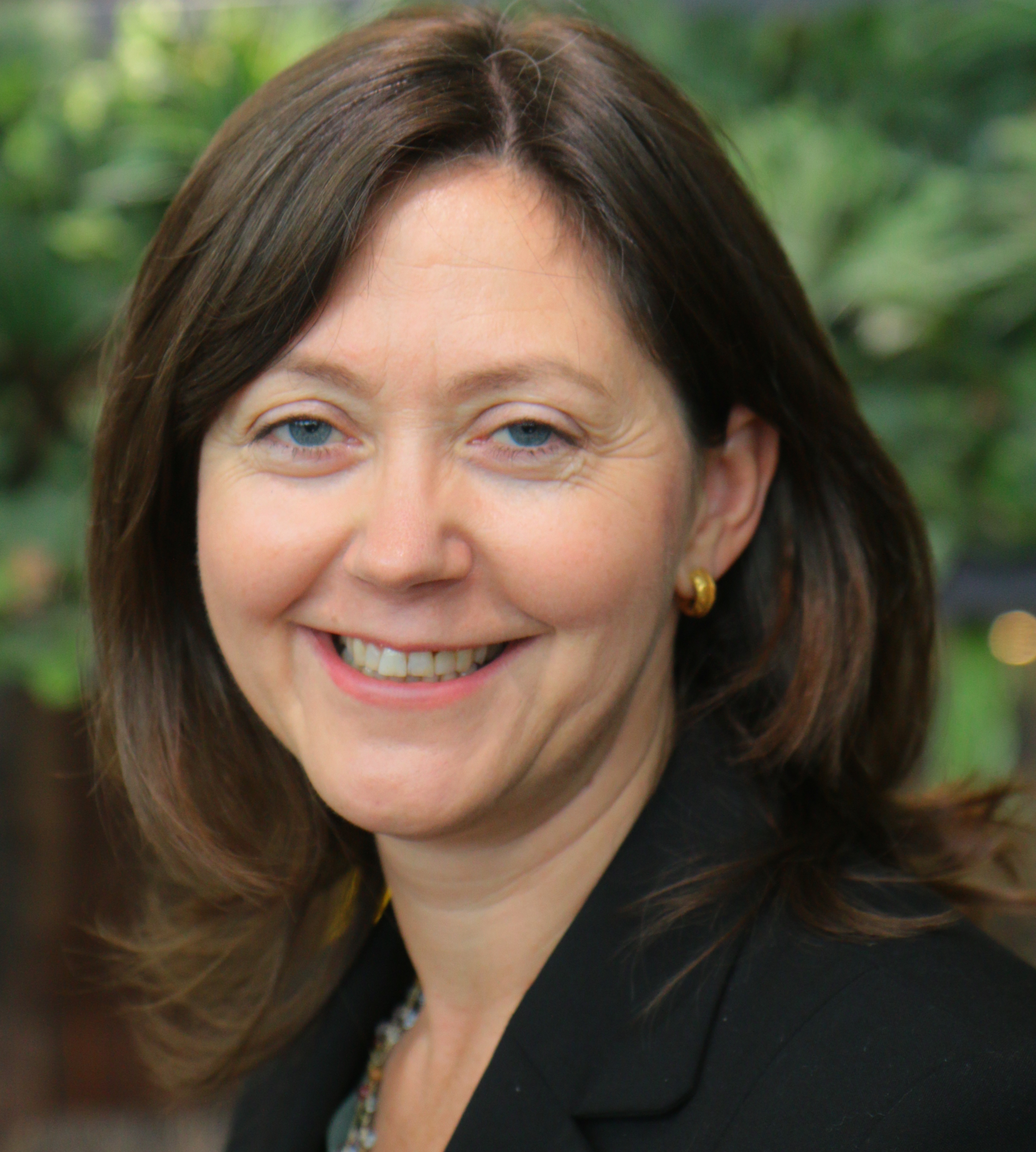
World-Class Education

Experience Anaheim University's TESOL Faculty
Rod Ellis, Ph.D.
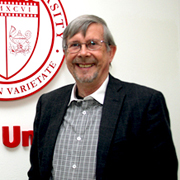
Vice President of Academic Affairs
Doctor of Education in TESOL Program Designer
Senior Professor: TESOL
Dr. Rod Ellis is Vice President of Academic Affairs, Senior TESOL Professor and the designer of the Doctor of Education in TESOL degree program at Anaheim University. A distinguished thought leader in the field of Second Language Acquisition, Prof. Ellis received his Doctorate from the University of London and his Master of Education from the University of Bristol. A former professor at Temple University both in Japan and the US, Prof. Ellis has served as the Director of the Institute of Language Teaching and Learning at the University of Auckland, a John Curtin Distinguished Professor at C...
Learn More
Hayo Reinders, Ph.D.

Graduate School of Education Chair of Research
TESOL Professor, Graduate School of Education
Dr. Hayo Reinders is Chair of Research and TESOL Professor for the Anaheim University Graduate School of Education. Holding a Ph.D. in Language Teaching and Learning from the University of Auckland, Dr. Reinders is also Professor of Education and Head of Department at Unitec in Auckland, New Zealand. His previous positions include Head of Learner Development at Middlesex University in London, Director of the English Language Self Access Centre at the University of Auckland in New Zealand and associate professor at RELC in Singapore. He has worked with teachers from a large number of countri...
Learn More
David Nunan, Ph.D
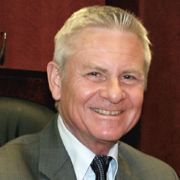
Master of Arts in TESOL Designer
Senior Professor: TESOL
Dr. David Nunan is the Director of the Anaheim University David Nunan TESOL Institute and Senior Professor of TESOL for the Anaheim University Graduate School of Education. He was the founding Dean of the Anaheim University Graduate School of Education and previously served as President of Anaheim University from 2006 to 2008 and as Vice-President for Academic Affairs from 2008 to 2013. Dr. David Nunan is former president of TESOL, the world's largest language-teaching organization. Dr. Nunan is an applied linguist and author of English Language Teaching textbooks for Cambridge University P...
Learn More
MaryAnn Christison, Ph.D.
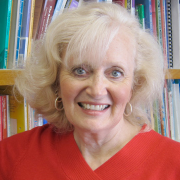
Professor: TESOL
Dr. MaryAnn Christison is a TESOL Professor in the Anaheim University Graduate School of Education. A past President of TESOL (1997-1998), MaryAnn Christison serves on the Board of Trustees for The International Research Foundation (TIRF). Holding a Ph.D. in English/Linguistics from the University of Utah, Dr. Christison has been teaching graduate and undergraduate courses in applied linguistics for over 30 years. She is the author of over 80 refereed articles in journals on language teaching and second language research and 18 books including Leadership in English Language Education: Theor...
Learn More
Andy Curtis, Ph.D.
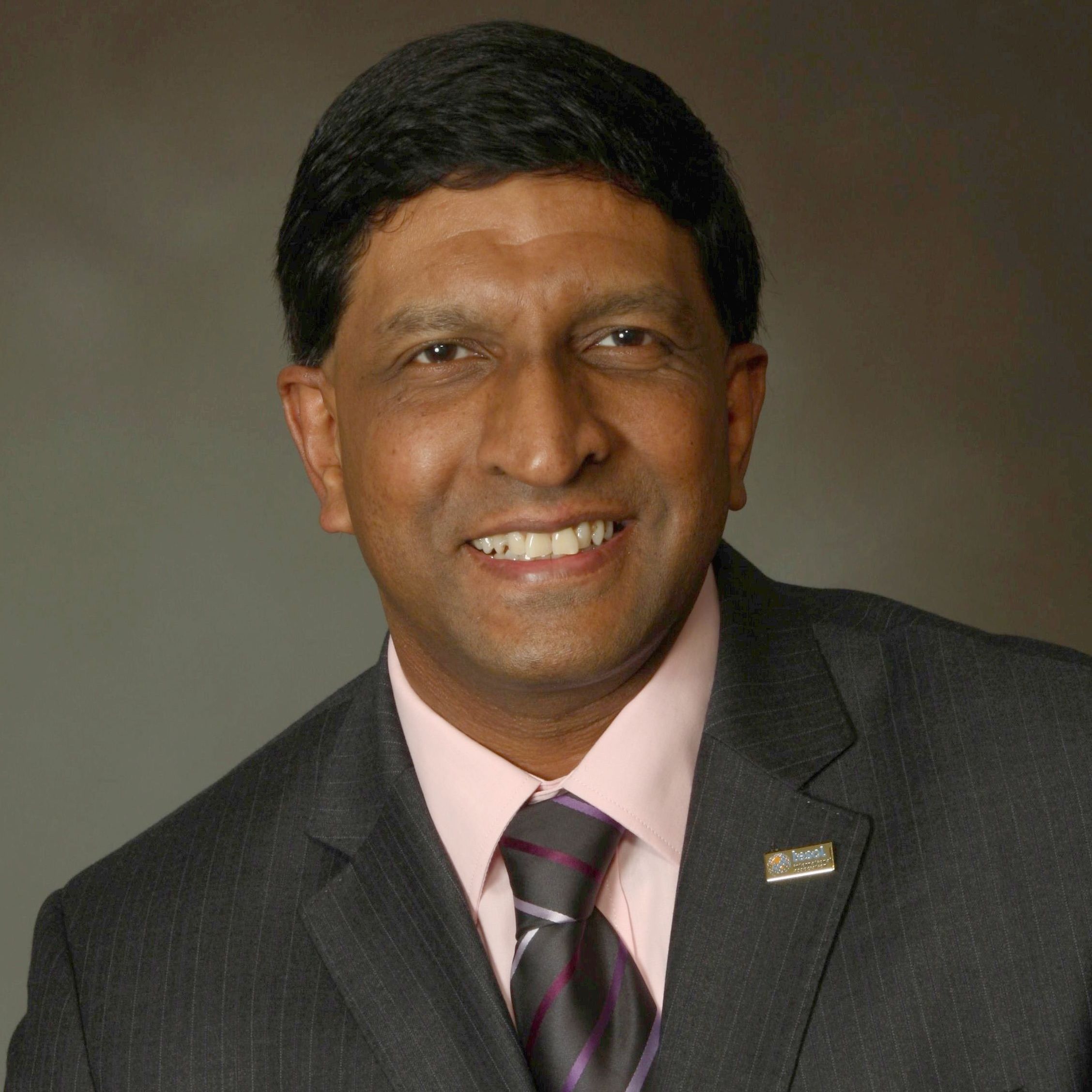
Professor: TESOL
Dr. Andy Curtis is a TESOL Professor in the Anaheim University Graduate School of Education. From 2015 to 2016, he served as the 50th President of TESOL International Association, the largest association of its kind in the world, as the first Association President of Indian origin, and the first from the Afro-Caribbean Pacific (ACP). As one of the very few presidents of color, in the 55-year history of the Association, much of his work has focused on the intersectionality of Race, Color and English Language Teaching (Curtis & Romney, 2006). After some years of working in UK hospitals, a...
Learn More
Thom Hudson, Ph.D.
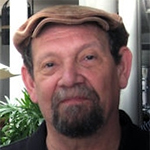
Professor: TESOL
Dr. Thom Hudson is a TESOL Professor in the Anaheim University Graduate School of Education. He received his BS degree in sociology from the University of California at Berkeley, and his MA degree in TESOL and Ph.D. in Applied Linguistics from the University of California at Los Angeles. Dr. Hudson is professor of Second Language Studies (SLS) at the University of Hawai'i at Mānoa, and co-editor of the electronic journal Reading in a Foreign Language. He has been on the Department of SLS faculty at UHM since 1989. Prior to coming to Hawai’i, he taught three years in Cairo, Egypt, numerous y...
Learn More
Ken Beatty, Ph.D.
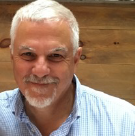
Professor: TESOL
Dr. Ken Beatty is a TESOL Professor in the Anaheim University Graduate School of Education. A specialist in the area of Computer Assisted Language Learning (CALL), Dr. Beatty is the author/co-author of more than 140 textbooks and readers from the primary through university levels. Although most of these focus on various aspects of English as a Second Language, he also writes and reviews on the topic of Computer-Assisted Language Learning (CALL). Dr. Beatty has worked at universities in Asia, North and South America, and the Middle East. He holds a Ph.D. in Curriculum Studies from the Univer...
Learn More
John Macalister, Ph.D.
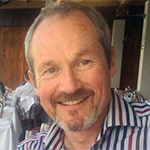
Professor: TESOL
John Macalister is a TESOL Professor at Anaheim University and Head of the School of Linguistics and Applied Language Studies at Victoria University of Wellington, New Zealand, and immediate past president of the Applied Linguistics Association of New Zealand. His work in language curriculum design and language teaching methodology have been highlighted in two books published by Routledge and co-authored with Professor Paul Nation. One of the defining characteristics of John’s work is the link between research and practice with a recent example being the design of an English curriculum for...
Learn More
Jo Mynard, Ph.D
Professor: TESOL
Dr. Jo Mynard is a Professor in the Anaheim University Graduate School of Education, Professor in the English Department, Director of the Self-Access Learning Center (SALC), and Director of the Research Institute for Learner Autonomy Education (RILAE) at Kanda University of International Studies (KUIS) in Chiba, Japan. She completed her Ed.D. in TEFL from the University of Exeter, UK in 2003 and an M.Phil. in Applied Linguistics from Trinity College, University of Dublin, Ireland in 1997. She has lived in Japan since 2015, but has also worked in the United Arab Emirates, France, Spain, Germany, Australia, the USA and Ireland and has been involved in language education since 1993. She is the founding editor of SiSAL Journal (Studies in Self-Access Learning), has been a committee member of the IATEFL Learner Autonomy Special Interest Group since 2001, and is an executive officer for the International Association for the Psychology of Language Learning. Her professional interests are learner autonomy, advising in language learning, affect, and learning beyond the classroom/self...
Learn More
Brian Tomlinson, Ph.D.
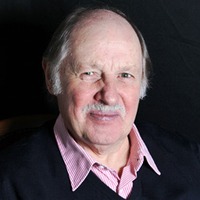
Professor: TESOL
Dr. Brian Tomlinson is a TESOL Professor in the Anaheim University Graduate School of Education. He is considered to be one of the world's leading experts on materials development for language learning. In 1993 he established the world's first MA dedicated to the study of materials development for language learning (at the University of Luton in the UK) and he founded MATSDA (Materials Development Association). He has been Chair and then President of MATSDA ever since 1993 and, as such, he launched the journal Folio and ran (with Hitomi Masuhara) a number of materials writing workshops in t...
Learn More
Alessandro Benati, Ph.D.
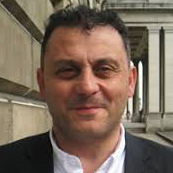
Professor: TESOL
Alessandro Benati is a professor at University College Dublin (Ireland). He has held positions in several British and overseas institutions. He is known for his work in second language acquisition, and he published ground-breaking research on the pedagogical framework called processing instruction. His research on processing instruction has been recently driven by the use of new online measurements (e.g., eye tracking, self-paced reading). Alessandro has coordinated national and international high-impact research projects which have been influential in determining educational policy and had...
Learn More
Talia Isaacs, Ph.D.
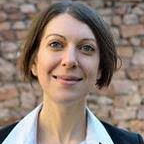
Associate Professor: TESOL
Dr. Talia Isaacs is a TESOL Associate Professor in the Anaheim University Graduate School of Education. She holds a Ph.D. in Second Language Education from McGill University and serves as Associate Professor of TESOL and Applied Linguistics at the UCL Institute of Education, University College London. She has designed and taught a wide range of courses in applied linguistics and TESOL at four UK and Canadian universities, including in language testing, aural/oral communication, TESOL pedagogy and curriculum, second language acquisition, and research methods. Her work on assessing second lan...
Learn More
Casey Keck, Ph.D.
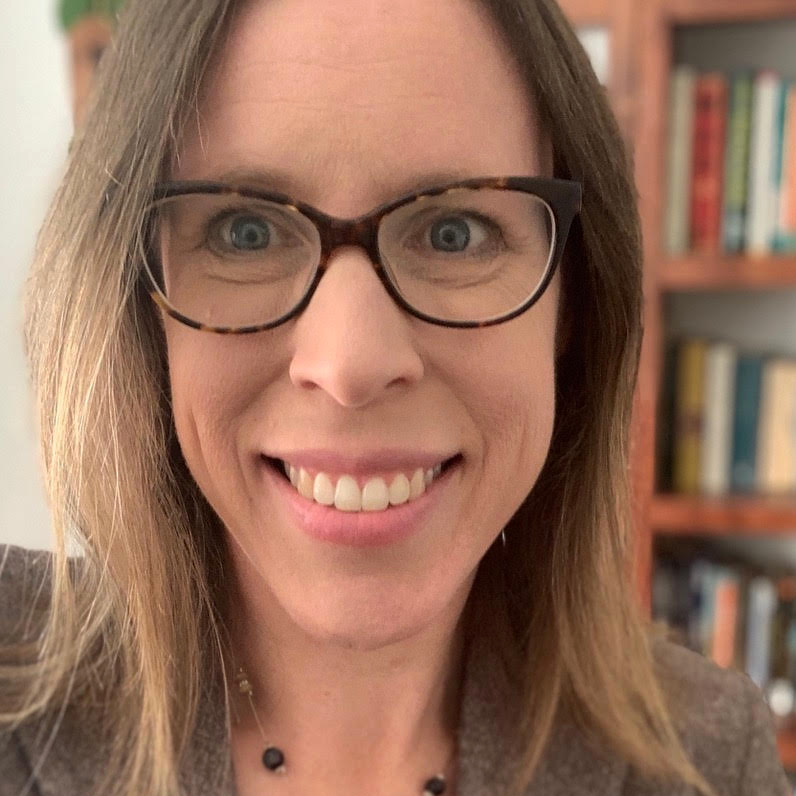
Associate Professor: TESOL
Dr. Casey Keck is a TESOL Associate Professor in the Anaheim University Graduate School of Education and Associate Professor of Linguistics and Associate Chair of the English Department at Boise State University. She has over 20 years of experience teaching English as a second language to immigrants, refugees, and international students. She holds an MA in TESL and a PhD in Applied Linguistics from Northern Arizona University. Her research focuses on best practices in teaching English to adults in both community and university contexts, and her book, Pedagogical Grammar, is used in graduate...
Learn More
Masatoshi Sato, Ph.D.
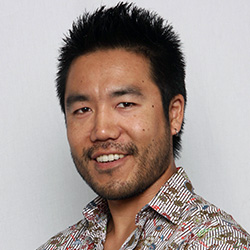
Associate Professor: TESOL
Dr. Masatoshi Sato is a TESOL Associate Professor in the Anaheim University Graduate School of Education. Dr. Sato earned his Ph.D. in Educational Studies, Language Acquisition and a Master of Arts in Second Language Education from McGill University, as well as a Graduate Certificate in TESOL from the University of New Mexico and a Bachelor of Arts in International and Intercultural Communication from Kobe University. In addition to serving as Associate Professor in TESOL at Anaheim University, Dr. Sato is a Professor in the Department of English at Universidad Andrés Bello, Chile. His res...
Learn More
Natsuko Shintani, Ph.D.
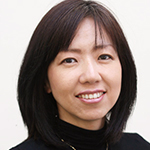
Associate Professor: TESOL
Dr. Natsuko Shintani is a TESOL Associate Professor in the Anaheim University Graduate School of Education. She obtained her Ph.D. from the University of Auckland in 2011. She has worked as a language teacher in Japan and New Zealand, including in her own private language school for children. Her research interests include task-based language instruction, the role of interaction in second language acquisition and written corrective feedback. She has also worked on several meta-analysis studies of form-focused instruction. She has published widely in leading journals and is currently working...
Learn More
Scott Aubrey, Ph.D.
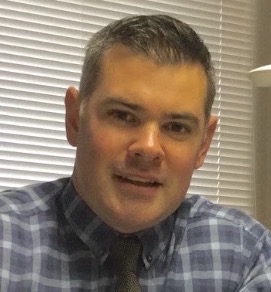
Assistant Professor: TESOL
Dr. Scott Aubrey is a TESOL Assistant Professor in the Anaheim University Graduate School of Education. Scott Aubrey received his Ph.D. in Applied Linguistics from the University of Auckland in 2016. He has taught at language schools and universities in Korea, Japan, and Hong Kong. Scott’s research and teaching interests include L2 motivation, the role of inter-cultural contact (inside and outside the classroom) in language learning, task-based language teaching, and L2 writing instruction. His published work includes articles in leading journals such as TESOL Quarterly, Language Teaching...
Learn More
Vivian Bussinguer-Khavari, Ph.D.
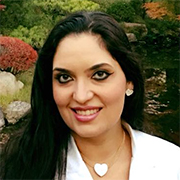
Assistant Professor: TESOL
Dr. Vivian Bussinguer-Khavari is a TESOL Assistant Professor in the Anaheim University Graduate School of Education. Originally from Brasilia, Brazil, she was raised bilingually, acquiring both Portuguese and English simultaneously, while attending an international school from age 3 to 18. Upon high school completion, she was granted a full scholarship by the Japanese government, offered directly by the Ministry of Education, Culture, Sports, Science and Technology. She took up the challenge of studying in a brand-new environment and pursued higher education in Japan. After studying the Jap...
Learn More
Stephen Ryan, Ph.D.
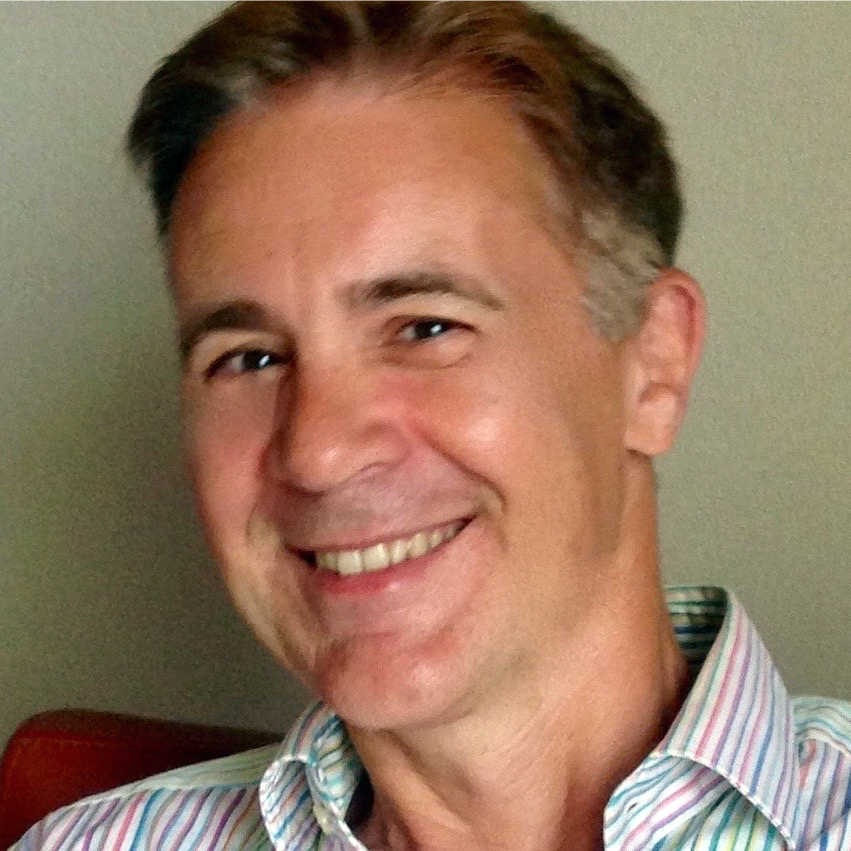
Assistant Professor: TESOL
Dr. Stephen Ryan is a TESOL Assistant Professor in the Anaheim University Graduate School of Education and a professor in the School of Culture, Media, and Society at Waseda University in Tokyo. Stephen Ryan has been involved in language education for over 25 years, and for most of that time, he has been based in Japan. His research and publications cover various aspects of psychology in language learning, including the award-winning Exploring Psychology in Language Learning and Teaching, co-authored with Marion Williams and Sarah Mercer, and The Psychology of the Language Learner Revisited...
Learn More
In remembrance: Sandra McKay, Ph.D. (1945-2023)

Professor: TESOL
Dr. Sandra McKay was a TESOL Professor in the Anaheim University Graduate School of Education, Professor Emeritus of English at San Francisco State University and an affiliate faculty member in the Second Language Studies program at the University of Hawaii, Manoa. She received her doctorate from the college of education at the University of Minnesota in applied linguistics. Her main areas of work and research were second language teacher education, sociolinguistics (with a focus on English as an international English) and research methods. She also published and presented on topics related...
Learn More
In Remembrance: Ruth Wajnryb, Ph.D. (1948-2012)
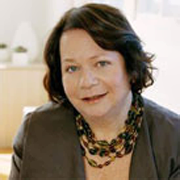 Ruth Wajnryb, Ph.D.
Ruth Wajnryb, Ph.D.
Former Professor Emeritus TESOL and Graduate School of Education Associate Dean
A distinguished linguist known for her theory on "Dictogloss", Dr. Ruth Wajnryb served as the word/language columnist for Australia's leading newspaper, the Sydney Morning Herald.
Learn More Read More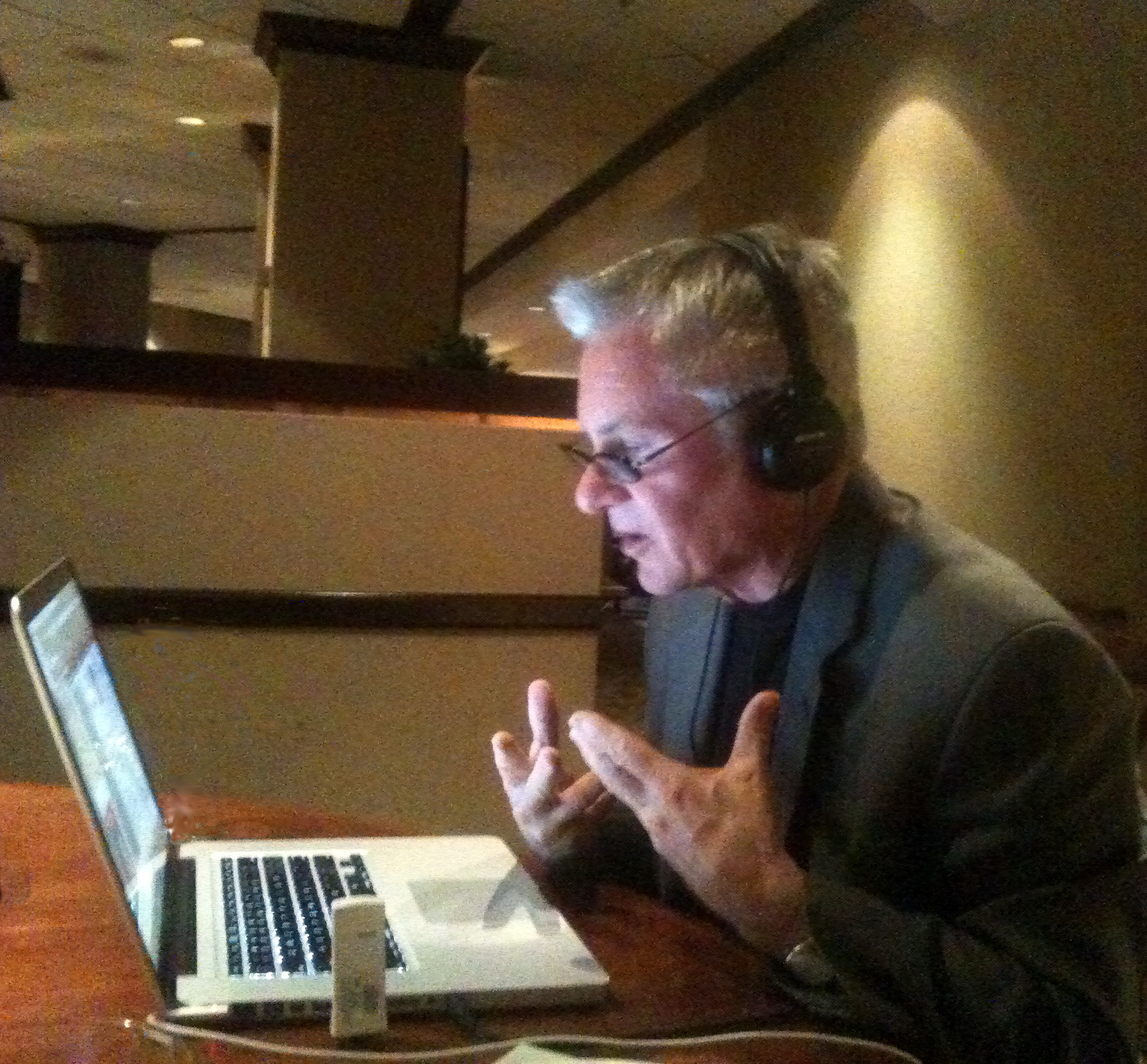 AU President Emeritus and former Dean of the Graduate School of Education Dean Dr. David Nunan teaching a live webcam class
AU President Emeritus and former Dean of the Graduate School of Education Dean Dr. David Nunan teaching a live webcam class
The Anaheim University Graduate School of Education offers a cutting-edge online Doctor of Education in Teaching English to Speakers of Other Languages (Ed.D. in TESOL) degree program. Experience the following AU advantages:
Benefits
- Experience Anaheim University's TESOL professors through live webcam classes
- Receive a Doctor of Education in TESOL through the flexibility of online learning
- Meet your professors and classmates from around the world face-to-face at 2 residential sessions
- Earn your Doctoral degree in approximately 3 years while working full-time
- Improve your teaching skills and qualifications
Features:
- 16 x 9 week Online Courses + Dissertation
- Weekly live webcam classes
- New terms begin every 10 weeks
- Register for 1 or 2 courses per term
- 1 Course = 4 Credit Points
- Ed.D. in TESOL Program = 76 Credit Points
- 2 x 4 day residential sessions. Sessions held annually in California or other select locations
- Total duration = 3+ years
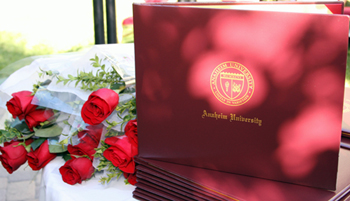
Program Objectives
The Ed.D. in TESOL degree program aims to develop the knowledge and skills to:
- form a critical understanding of the interdisciplinary literature that informs the field of TESOL
- evaluate research-based evidence and consider its relevance to TESOL
- design and evaluate curricula and instructional materials
- undertake a leadership role in TESOL
- design and conduct research studies that address pedagogical issues relevant to TESOL
The Online Doctor of Education in Teaching English to Speakers of Other Languages (Ed.D. in TESOL) degree program consists of 16 courses and a dissertation, and will take approximately three to four years to complete.
Course Duration: Each course is nine weeks long.
Read More
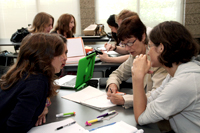 TESOL Residential Session
TESOL Residential Session
Doctor of Education in TESOL (Ed.D.) Course Schedule
Real-time online classes are 90 minutes; the first hour is led by the professor and the final half-hour is for student-led discussion. All times are California/Pacific Time. Please note the schedule is subject to change.
Ed.D. TESOL REQUIRED 4-DAY RESIDENTIAL SESSIONS
Ed.D. TESOL students are required to attend two 4-day residential sessions during their program. Each year, an annual residential session will be held in California or other locations around the world on occasion. Details regarding the 2025 residential session are forthcoming.
| Term | Course | Real-time Online Class time (Fridays CA time) |
| Term 1: January 2 - March 3, 2025 |
EDU 700 Instructed Second Language Acquisition EDU 702 Individual Learner Differences in Language Learning and Teaching EDU 732 Dissertation Proposal Writing EDU 733 Dissertation |
TBA |
| Term 2: March 10 - May 12, 2025 |
EDU 721 Language Teacher Education EDU 711 Technology and Language Education EDU 704 Discourse Analysis for Language Teachers EDU 733 Dissertation |
TBA |
| Term 3: May 19 - July 21, 2025 |
EDU 720 ELT Leadership and Management EDU 712 ELT Materials Development EDU 731 Quantitative Research Methods EDU 733 Dissertation |
TBA |
| Term 4: July 28 - September 28, 2025 |
EDU 732 Dissertation Proposal Writing EDU 710 Curriculum Design EDU 733 Dissertation |
TBA |
| Term 5: October 6 - December 7, 2025 |
EDU 701 Interlanguage Pragmatics EDU 733 Dissertation |
TBA |
All online class times are California/Pacific Time. Please note that California observes Daylight Savings Time each year from the second Sunday in March to the first Sunday in November.
Comprehensive Exams are scheduled according to student need. Students who fail the Comprehensive Exam will be enrolled in a Study Term and assigned a professor to mentor them through the process of studying and synthesizing their coursework. They will pay the standard tuition and records fee for this support and to re-sit the exam.
PLEASE NOTE: Failure to take a required course when one is offered may prevent a student from completing his/her program in the allotted time, as all course work must be completed before a student will be allowed to advance to the dissertation phase of the program. Schedules are subject to change.
Read MoreDoctor of Education in TESOL (Ed.D) Program Fees
Affordable Pay-As-You-Learn System: Pay for only one course at a time.
| Application and Registration Fees | ||
|---|---|---|
| Application Fee (Non-refundable after 7 days) |
$ 75 | |
| Registration Fee (Non-refundable after 7 days) |
$100 | |
| STRF Fee* (non-refundable, CA residents only) | $0 | |
| Per Course Fees | ||
| Tuition Fee ($500 per credit x four credits) |
$2,000 / course taken | |
| Records Fee | $ 200 / term | |
| Per Course Fee Total: | $2,200 | |
| Residential Session Fees | ||
| Residential Fee per session attended $ 1,500 / session (Room & Board not included)** | $3,000 | |
| Estimated Accommodations Fees | $1,600 | |
| Additional Fees | ||
| Estimated Textbook Fees | $ 700 | |
| Research reserved fund | $2,000 | |
| Transfer Credit Fee | $ 75 / course (optional) | |
| Original Transcript | No cost | |
| Each Additional Transcript Copy | $ 25 | |
| End of Program Fees | ||
| Diploma | No cost | |
| Replacement Diploma | $ 200 (optional) | |
| Replacement Cover | $ 100 (optional) | |
| Official Completion Letter | $ 35 (optional) | |
| Degree Program Total | $49,275 ++ | |
**We offer a discounted on-campus housing option for the residential session -- the cost varies depending on location. You may opt for alternate accommodations. The cost of travel will vary, depending on your distance from the residential session and your mode of transportation. Anaheim University does not provide visa services. For Doctor of Education (Ed.D) in TESOL students attending the four-day residential sessions, it is the students’ responsibility to ensure that they have taken care of proper visa procedures, if required.
++Assumes completion in 19 terms.
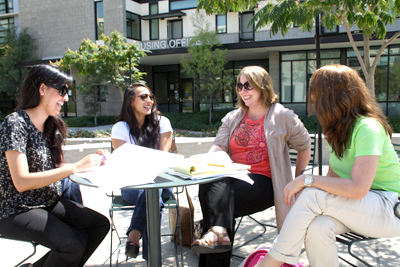 TESOL Residential Session in California
TESOL Residential Session in California
Note: A student can plan on approximately $700 in textbook purchases during the program. A textbook list may be found in the online resources of the student website. Real-time classes do not require specific materials beyond what is already supplied for the course.
Note: Anaheim University makes certain provisions in order to provide access to library resources and library services for all students enrolled directly through Anaheim University. However, students enrolled in Anaheim University’s online graduate degree programs are required to have an additional reserve fund to be used for the purchase of journals and research - materials that will aid them in their studies by providing information specific to their unique areas of interest and research - and to provide access to software and other resources that may help them in the completion of their studies. The research reserve fund is $1,500 for master's degree students and $2,000 for doctoral students to be used over the duration of their program. Students are not required to spend the entire research fund - only that amount necessary in order to carry out their research.
The above itemizes all of the fees and charges for which the student is responsible. You may find the refund policy in the section on Policies & Procedures.
*Student Tuition Recovery Fund (STRF): The Student Tuition Recovery Fund (STRF) is administered by the California BPPE and applies only to California residents. The STRF fee is currently zero ($0) per one thousand dollars ($1,000) of institutional charges The State of California established the Student Tuition Recovery Fund (STRF) to relieve or mitigate economic loss suffered by a student in an educational program at a qualifying institution, who is or was a California resident while enrolled or was enrolled in a residency program, if the student enrolled in the institution, prepaid tuition, and suffered an economic loss. Unless relieved of the obligation to do so, you must pay the state-imposed assessment for the STRF, or it must be paid on your behalf, if you are a student in an educational program, who is a California resident, or are enrolled in a residency program, and prepay all or part of your tuition. You are not eligible for protection from the STRF and you are not required to pay the STRF assessment, if you are not a California resident, or are not enrolled in a residency program.
Each course is US$2,000.00 for tuition excluding books, materials and other costs as follows. Students must pay the required tuition fee prior to commencing their next course. The student is not required to pay this tuition fee until the student wishes to register for his or her next course.
Students interested in inquiring about non-interest-bearing monthly payment plan options should e-mail This email address is being protected from spambots. You need JavaScript enabled to view it.
Tuition may be paid on a course-by-course basis. Students may make payment by check, credit card (Visa, MasterCard, American Express or Discover), money order or bank transfer (the student is responsible for any transactions fees imposed by the institution).
An application for the TESOL Doctor of Education (Ed.D) Program must include the following:
- Application form
- Application fee ($75)
- One recent color photograph (digital is okay).
- A scan of a current, government-issued photo ID
- Official transcripts, licenses or certificates. The Ed.D in TESOL Program requires a Master's degree in TESOL or Applied Linguistics or in a relevant area of Education required from an accredited institution recognized by the US Department of Education and/or CHEA, or by the government of the country in which the degree was awarded, and with an overall GPA of no less than 3.0 on a 4.0 scale, or equivalent from non-USA Institutions.
( Note: If the university does not routinely issue transcripts in English, original language records must be submitted with official English translations. We will accept translations issued by the university or by the following professional translation services: Accredited Language Services; Berlitz; Liaison Linguistics; Josef Silny & Associates; American Evaluation & Translation Services (AETS); and Education Evaluators International. Translations must be exact and complete versions of the original records.) - A resume documenting a minimum of 4 years experience in some aspect of TESOL (teaching, teacher education or publishing).
- An outline (1,000 words) of the possible research that the applicant envisions undertaking for the dissertation that demonstrates his/her research experience and abilities.
Three reference letters (on letterhead with contact information) attesting to personal and professional qualifications. One reference must be from each of the following:
- A recent employer.
- A TESOL professional who can attest to the applicant’s potential as a doctoral student.
- A member of the academic faculty where the applicant completed his/her MA.
Non-native English speakers must demonstrate college-level proficiency by providing original documentation in one of the following ways:
- Degree from an accredited institution where English is the primary language of instruction.
- Transcript from an accredited institution indicating completion of at least 30 semester hours of credit where the language of instruction was English (“B” average)
- A minimum TOEFL score of 550* PBT / 213 CBT/ 80 iBT.
- A minimum TOEIC score of 800*.
- A minimum IELTS score of 6.5*.
- A minimum PTE (Pearson Test of English Academic Score Report) of 58.
- A minimum BULATS Level 3 (60), accepted only for Cultura Inglesa in Brazil.
- A minimum grade of Level 3 on the ACT COMPASS’s English as a Second Language Placement Test.
- A minimum grade of Pre-1 on the Eiken English Proficiency Exam.
- A minimum B2 English proficiency level identified within the Common European Framework of Reference (CEFR) Standards and assessed through various ESOL examinations, including the University of Cambridge.
Once your application materials have been approved, you will need to submit an Enrollment Agreement and tuition payment to complete the enrollment process.
Internet Access: All students are required to have access to a computer equipped with Internet access capabilities.
Entrance Examination: There is no entrance examination required for admission to Anaheim University.
Transfer Credits: Anaheim University will accept up to two graduate semester classes or 8 units awarded by another institution toward an Ed.D degree at Anaheim University. The entering student will be required to clearly demonstrate the equivalency of a transfer course through relevant documents (syllabus, catalog, course outline) and justify its acceptance through petition. No course will be considered for transfer with a grade lower than a “B” or its equivalent. Petitions are directed to the specific Dean for the affected program. There is a fee of $75 (Ed.D) per course of credit transferred, and the overall program cost will be adjusted to reflect credit for the approved class(es). All petitions for transfer credit must be submitted as part of the student’s initial application to the University. Credits awarded as part of another degree will not be accepted for transfer.
Prior Experiential Credit: Anaheim University will not extend experiential credit to any student.
We currently do not accept students who reside in Alabama, Arkansas, Alaska, American Samoa, Connecticut, Delaware, District of Columbia, Georgia, Guam, Indiana, Maryland, Massachusetts, Michigan, Minnesota, Montana, New Jersey, New Mexico, New York, North Carolina, North Dakota, N. Mariana Islands, Oklahoma, Oregon, Pennsylvania, Puerto Rico, Rhode Island, Utah, Virginia, Virgin Islands, Wisconsin, and Wyoming due to regulatory matters. For more information, please call our Vice President of Administrative Affairs at 714-772-3330
Read MoreResidential Sessions (Residentials)
The Residentials are an integral part of Anaheim University's Ed.D. in TESOL and MA TESOL programs, and they are widely considered by students to be their favorite component of the program. The Residentials have two primary aims:
- To complement the existing curriculum by focusing on specific topics that are introduced in the online courses but not addressed in detail
- To enhance the sense of community among the students and faculty members in the programs through face-to-face communication.
At the Residentials, formal lectures are kept to a minimum. Instead, students work collaboratively, engage in debates, make presentations, and focus on practical assignments and tasks in ways that are limited in an online environment. The Residentials also provide the instructors with an opportunity to model pedagogical practices. By taking part in simulations, debates and other activities, students get to see firsthand how these activities can be incorporated into their own instruction. They complete a series of experiential application tasks that complement the theoretical and empirical input provided through the online courses.
Students must attend two four-day Residential sessions during their program. Students who register for a Residential will receive information prior to the start of the program that contains details about accommodations, schedule, pre-residential tasks and pre-residential reading. Typically, there are two groups -- one for the MA students and one for the Ed.D. students -- along with three plenary sessions that bring the two groups of students together. The tuition for the Residential Session is included in the total program price, but students must pay for their own travel, room and board. The Residential Session typically alternates between California and Asia.
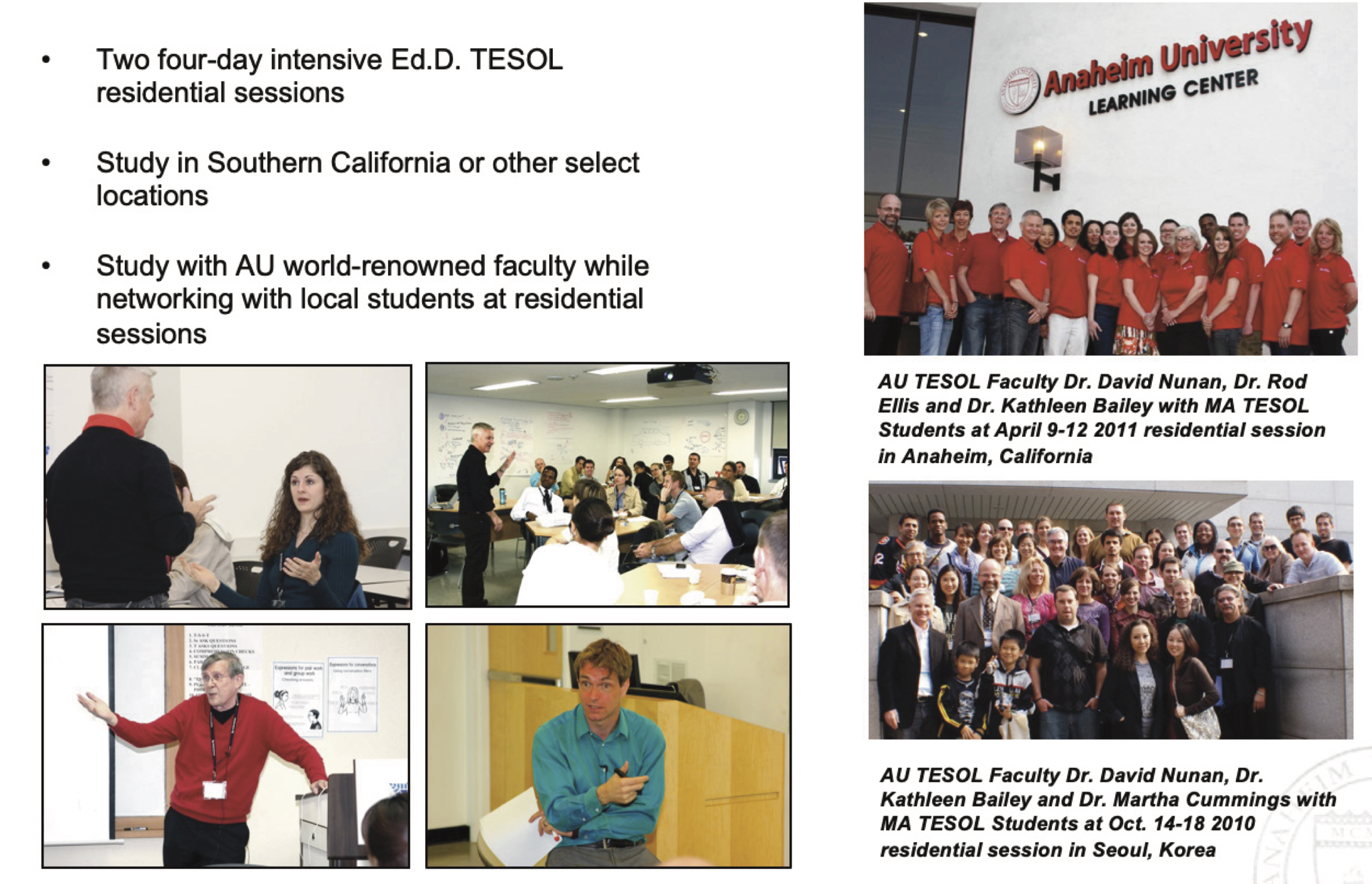
![]() The steps below are general guidelines for joining a program at Anaheim University. Just complete the following steps and, if approved, become part of Anaheim University's global community within 2 weeks.
The steps below are general guidelines for joining a program at Anaheim University. Just complete the following steps and, if approved, become part of Anaheim University's global community within 2 weeks.
|
Read thoroughly through the pages of our website and catalog |
|
|
Click here to submit your application online
|
|
|
The following documents are required for admission:
†††† DBA Only
*scanned copies are accepted to expedite application process while waiting for originals to arrive in the mail
Documents can be uploaded as part of the online application form, emailed to This email address is being protected from spambots. You need JavaScript enabled to view it. or posted in the mail to the address in Step 5. The complete list of Entrance Requirements for each program can be found here.
|
|
> CLICK HERE FOR THE NEXT 3 STEPS |
Read More









